A big welcome and thank you to all my new subscribers. I’m thrilled you have found me!
When I was thinking about starting Africa Unbound, this week’s guest was high on my wish-list of interviewees. I first met Yemisi Aribisala back in 2016, when I interviewed her for the BBC. She was living just outside of Cape Town, and we spent a long, lovely afternoon talking about food. Her book, Longthroat Memoirs: Soup, Sex and Nigerian Taste Buds had just been published. It was unlike anything I had read before - sharp, subversive, witty, a joy to read. She is a sensational writer, so I was not at all surprised when she went on to win the prestigious John Avery Award in 2017.
Much has happened since that interview, and I wanted to check back in with Yemisi about where she is now.
Before we get into the interview — Yemisi kindly read a delightful excerpt from her book, which you can find after the interview. Don’t miss it.
**I’m giving away two copies of Longthroat Memoirs - let me know in the comments why the book should go to you.
Onwards.
Kim: What was the first cookery book that opened up the world of food writing to you?
Opened up by degrees is what I would say. Because there were so many of them, and some of them I found decades apart. Like The 1976 All Colour Cookery Book by Jenny Wright that I carried around until it fell to pieces: Rita G. Springer’s Caribbean Cookbook, a gift from my Guyanese Aunty: Holly Hughes Best Food Writing, discovered decades from the two I’ve mentioned: Gabrielle Hamilton’s Blood Bones & Butter, my first purchased food memoir: Isabelle Allende’s Aphrodite, my first introduction to food and sensuality: Maya Angelou’s Great Food All Day Long (I’ve never read a sentence on food by Angelou that I didn’t love): Richard Wrangham’s Catching Fire: How Cooking Made us Human and Will Write for Food by Dianne Jacob (essential manual for food writing) etc. I can’t honestly say there was just one book.
You wrote in your book, “I tell people that the world has not met Nigerian food…” Why, given Nigeria’s enormous cultural footprint, do you think Nigerian food is still largely unknown outside of Nigeria?
This is a wieldy question Kim. First of all, it has been over a decade since I wrote that. The answer keeps expanding with each day. Just a few days ago, I published a piece on Scribehound Foods on Plantains. From the responses to the article, I realised with shock (I suppose I am out of touch) that I was talking about food that hadn’t made it to the United Kingdom of Great Britain & Northern Ireland. Not really…despite the Windrush generation (devout plantain eaters) getting here in 1948. Being able to order plantains on Amazon, new Nigerian online food stores opening up what seems every week. A lot of our food is basically still classified as ‘exotic’ and unfamiliar, or at best unexplored. It broke my heart a little bit, but to be fair, how much Black Pudding and Bubble and Squeak are Nigerians in Nigeria eating? I think Nigerian food has made a strong impression on the world, and this you can tell from people eating Fufu and Okra on TikTok. I’m not sure, though, that people are really engaging at a deeper level than ‘extreme eating for likes’, or that non-Nigerians are choosing Nigerian over Chinese for midweek dinner. Jollof rice is a sincere global trend, and despite, as you say, our enormous footprint, our food is still, in my opinion, in its introductory phase to most of the world. We ourselves delayed that introduction as a first premise.
You published Longthroat Memoirs in 2016. What has changed since in terms of lifting the curtain on Nigerian cuisine?
Social media, with its ability to help you engage with facets of other cultures from other parts of the world from one device in your hand, has carried our food along in its progression or lack of it, depending on how you feel about social media. There are more Nigerian chefs known to the world now. Innovators like Adejoke Bakere who recently won a Michelin star for cooking with exceptional integrity and flair at Chisuru in London and Kwame Onwuachi who is admittedly half Nigerian (from the Bronx), cooking at the Met Gala 2025. Even though Duval Timothy, Jacob Fodio Todd and Folayemi Brown had already been running a bi-monthly supper club for 4 years before my book came on the scene…2015, 2016 feels like a breakthrough point for Nigerian food. You could read about the Groundnut Boys’ work in the UK Guardian in 2015. Their ground-breaking Groundnut Cookbook was published in 2015. Lope Ariyo’s book, which won the Observer Rising Star of Food award, was the first Nigerian-facing cookbook to bring our food to full international attention. That was in 2017. There wasn’t a lot more you could see about Nigerian food from a computer search, if you thought to search for where to eat it in London, for example. This, of course, doesn’t discount all the activity on the ground, in home kitchens, in the diaspora and back in Nigeria, but in terms of talking about our food internationally or available information as we say ‘out there', Nigerian food was mysterious to most of the world. Now the internet isn’t looking askance when you ask it about Nigerian food. In 2016, perhaps you got one or two hits from Ask Jeeves.
One of the many joys of reading your book is following the unexpected detours you take into different aspects of Nigerian culture through food. Did you go into your writing with an overarching thesis or was it more about pulling at culinary threads that you found interesting?
It was really the latter, because I wasn’t planning to write a book. It must also have to do with the way that I think, in a quite distracted manner, that often has to be tamed by editors. I am interested in a lot of different things and read widely; inevitably, when speaking and writing, I’m looping into other topics. What should have been a disadvantage turned out to be a qualifier for my writing in the book.
When you were writing your book was there an intended audience in mind?
We can say that I was writing for Nigerians who, before that, had not had the opportunity to talk about the rationale for their food. As impossible or astounding as that sounds for 2008 or 2009 when I began to write my column for 234Next.
For anyone who is yet to encounter Nigerian cuisine, is there a dish that you feel is a good gateway into what is an incredibly vast and complex cuisine?
I would choose a complicated soup I think, perhaps out of necessary defensiveness… because Jollof rice is already well known and loved and almost like a cliche now. I even meet people who ask me if I know Jollof rice and I have to keep a straight face. I would choose Afang Soup because in making and eating it, you would really have to think about the region and country where it comes from. The Afang, or Eru as it is called by Cameroonians who are our neighbours to the East, is a leaf with a great personality and many fascinating stories. You could use up to ten other ingredients in making the soup, and you would have to think of each ingredient and understand its inclusion, so it is a great point of engagement with Nigerian food that you cannot trivialise.
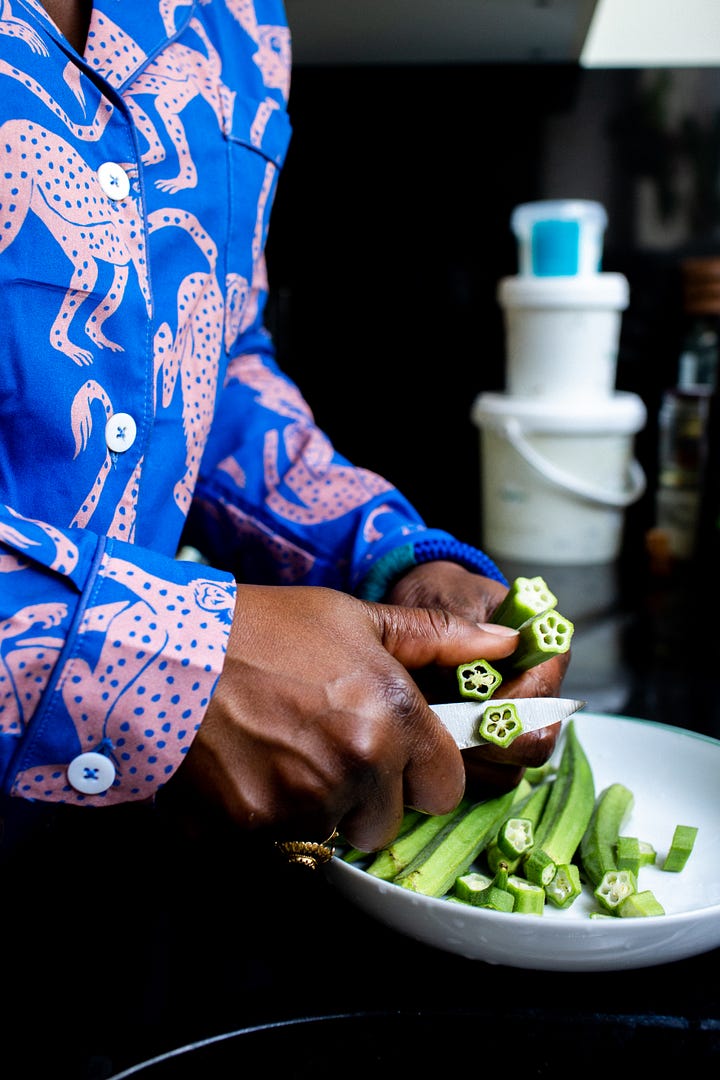
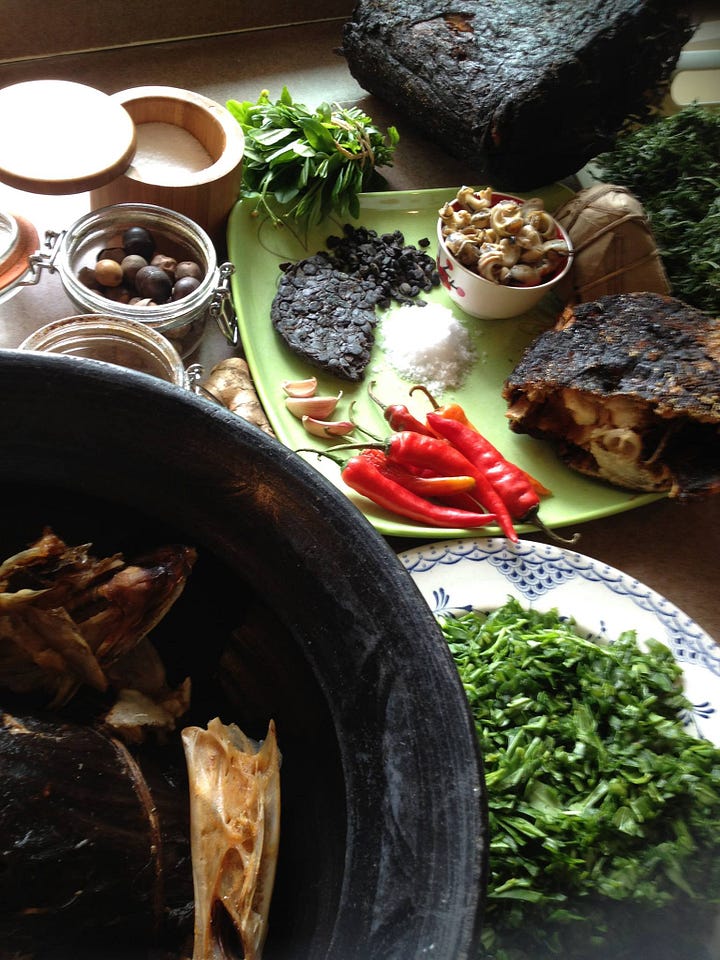
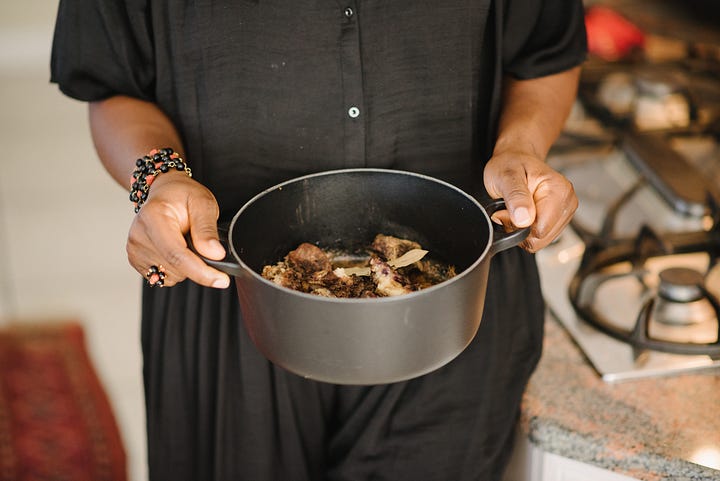
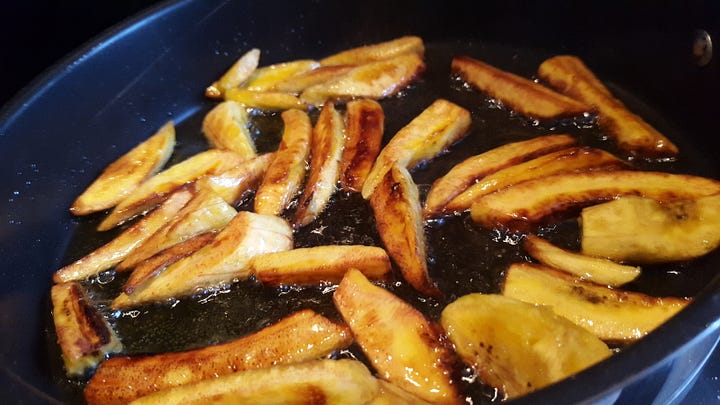
What are some of the common misconceptions about Nigerian cuisine?
That there is in fact no cuisine worth investigating past one Jollof rice dish, or that there isn’t one worth paying attention to when you discover it, or that because it is unfamiliar it is not delicious or palatable; or the most unfounded one - that it isn’t nutritious. And that in order to be healthy, you have to change cuisines to something more Northern-hemispherical.
Your book, unsurprisingly, did very well, you won the John Avery Prize and critics raved about your writing style, describing it as sensuous, cogent and lush. What did winning the prize change for you, if anything?
I thought I was obsessed with personal power before winning the prize. After winning the John Avery of the Andre Simon Prize, I could admit the reasons for the obsession. The lack of agency of a Nigerian woman close to middle age, with small children. Before the book, I had begun to seriously worry about creating a respectable legacy for my children that didn’t have to do with just kowtowing to culture. I had to answer to so many people, even where it concerned the most basic things …the prize was like being given magic shoes. What I suppose you could translate to the most wonderful social mobility and so much more delicious personal power than I had ever had in my whole life, or that I had ever believed I would be granted. Family members stopped giving me lectures about how writing was a waste of life. I was able to apply to live in the United Kingdom, a country that, in turn, gave me the most exquisite access to quiet spaces to write even more. The prize smoothed the publication of more writing and acceptance with writing comrades that I would never have met if my world was all in Nigeria. I really could go on and on…
You are also a talented painter. As both painting and writing are different forms of storytelling, do you find they complement each other in any way?
I find writing very hard. Very taxing on the spirit and draining on the mind. You can’t put enough distance between you and your words, I feel. and it is often like you are exposing yourself. The balance of privacy and visibility is excruciatingly difficult. I imagined that after writing for so many years, it would become easier and more natural. It hasn’t. The conclusion on my relationship to writing is that the voice in my head is as clean and refreshing as a glass of cold water but as it exits my mind to the page, it trickles lukewarm. Painting, on the other hand, is like undoing hard knots. There are so many things I hide in my paintings that I can’t hide in writing. There are many things I say in painting that I can’t get away with saying with words. I don’t think you can overthink a painting. Writing feels necessary and painful, painting is soothing and cathartic. Flaming Hydra my writing cooperative has given me the perfect platform to put both side by side.
I am very much looking forward to your next book. Is there anything you would do differently with your next project?
I would trust my instincts more. I would not allow a title that I felt was disingenuous. I would use more images, as many as words. I won’t do anything in the promotion cycle that makes me uncomfortable or insincere. I would enjoy the whole process more and worry less.
What is your go-to comfort food dish?
Bold Beans Borlotti from the large jar cooked with fresh sage, habaneros, slab pancetta, tons and tons of shallots, Spanish onions, garlic, carrots, butter, maybe some butternut squash and spinach…a good splash of stock, from roasted osso buco, maybe some marsala wine.
What are some of your Nigerian cooking essentials?
Dried Afang, Smoked White Crayfish, Fermented Locust Beans, Palm oil, Egusi, Large red smoked prawns (so expensive I hide them), Dried Cameroonian peppers, Ogbono seeds, Smoked whelks, Smoked periwinkles, etc
Could you recommend a food memoir/cookbook old or new?
Most definitely, Bee Wilson’s The Heart Shaped Tin.
You can listen to Yemisi read an excerpt from Longthroat Memoirs
Yemisi’s wonderful writing and various creative pursuits can be found online, including here, here and also here.
Other Cultural Matters
I will be attending the London Design Biennale 2025. The talented Myles Igwebuike has been selected to curate the Nigerian Pavilion. I have an interview with him coming up.
I am also rereading Ghostroots by Pemi Aguda. I read some good books last year, hers was one of my absolute favourites. It is such an imaginative and original book. I highly recommend it.
Please spread the word about this free weekly newsletter! And send me your suggestions for African creatives, both emerging and established, that I should feature.
Finally, don’t forget to plead your case as to why you should get a copy of Yemisi’s fantastic book below.
See you in the comments!





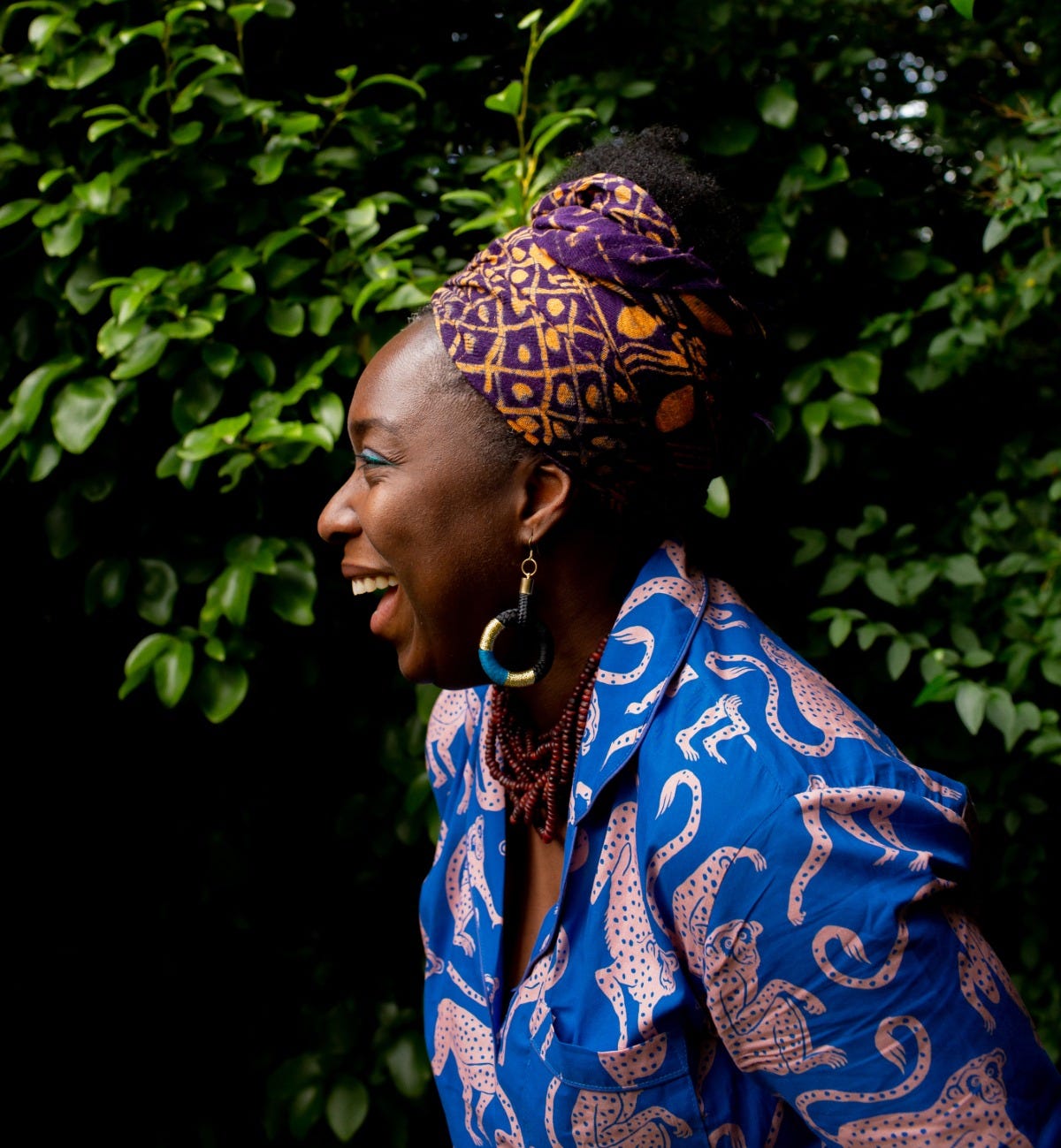



Aisha!!! Thank you for your support, it is so appreciated. I actually met Hawa through a friend earlier this year. But what an excellent idea to get her on... I shall certainly try. Thanks again.
Hiya Kimmmmmmm! As always love your pieces! So rich and delicious to read about Yemisi and her memoir ( what a beautiful title!!). If you are ever able to, I would suggest interviewing Hawa Hassan (I know I am biased here lol) who is a Somali chef and author just published her second book called ‘Setting a place for us’ focusing on the foods that passed down generations of communities that are surrounded by conflicts from DRC to Liberia to El Salvador and Lebanon. I also believe she is based in New York in case you fancy looking up her work.